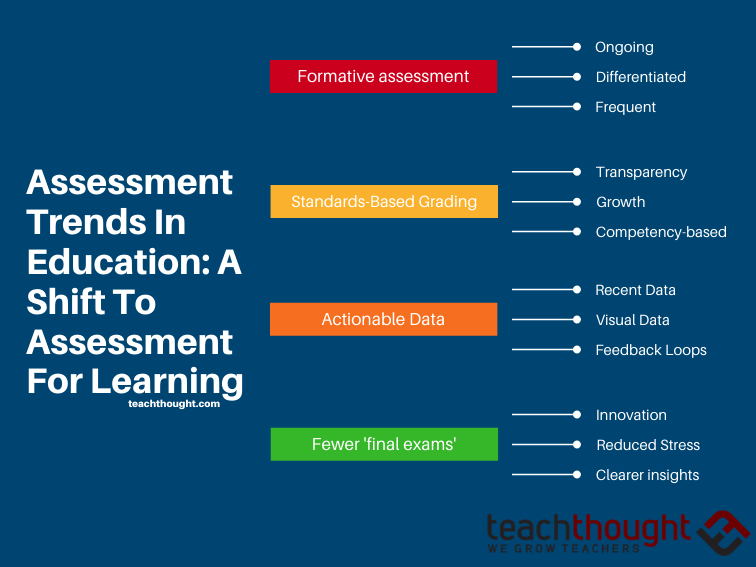Assessment is a critical component of secondary education, providing valuable insights into students’ learning progress, strengths, and areas for growth. While standardized testing has long been a prominent assessment method, educators are increasingly recognizing the limitations of this approach and exploring alternative strategies that offer a more comprehensive understanding of student achievement. This article examines the importance of assessment in secondary education and explores innovative strategies for moving beyond standardized testing to promote deeper learning and holistic student development.
Rethinking Assessment in Secondary Education
1. Comprehensive Evaluation:
Assessment in secondary education goes beyond measuring academic achievement to encompass a holistic evaluation of students’ skills, competencies, and attributes. Educators assess not only content knowledge but also critical thinking, problem-solving, creativity, collaboration, and communication skills essential for success in the 21st century.
2. Authentic Assessment:
Authentic assessment tasks mirror real-world challenges and contexts, providing students with opportunities to apply their knowledge and skills in meaningful ways. Performance-based assessments, projects, portfolios, and exhibitions allow students to demonstrate their understanding through authentic, contextually relevant tasks that promote deeper learning and engagement.
3. Formative Assessment:
Formative assessment practices are integral to the teaching and learning process, providing ongoing feedback and opportunities for improvement. Educators use formative assessment techniques, such as questioning, peer feedback, self-assessment, and observation, to monitor student progress, identify misconceptions, and adjust instruction to meet students’ needs in real-time.

Innovative Assessment Strategies
1. Project-Based Assessment:
Project-based assessment tasks require students to investigate, design, and present solutions to complex, real-world problems. Students engage in inquiry, research, collaboration, and reflection as they work on authentic projects that integrate multiple disciplines and promote interdisciplinary learning.
2. Performance Tasks:
Performance tasks assess students’ ability to apply their knowledge and skills in authentic performance contexts. Students may demonstrate their proficiency through presentations, debates, simulations, exhibitions, or creative performances that showcase their understanding and mastery of concepts.
3. Student-Led Conferences:
Student-led conferences empower students to take ownership of their learning by reflecting on their progress, setting goals, and showcasing their achievements to parents and educators. Students prepare portfolios, self-assessments, and reflections that highlight their growth, accomplishments, and areas for further development.
Advantages of Alternative Assessment
1. Deeper Learning:
Alternative assessment strategies promote deeper learning by engaging students in meaningful, inquiry-based tasks that require critical thinking, creativity, and problem-solving. Students develop a deeper understanding of content and skills as they apply their knowledge to authentic, real-world challenges.
2. Student Engagement:
Alternative assessment methods enhance student engagement and motivation by providing opportunities for choice, autonomy, and personalization. Students are more invested in their learning when they have a voice in selecting assessment tasks, setting goals, and demonstrating their understanding in ways that are personally meaningful to them.
3. Holistic Student Development:
Alternative assessment approaches support holistic student development by recognizing and valuing diverse talents, interests, and learning styles. Students’ strengths, abilities, and growth areas are more accurately assessed through multifaceted, performance-based tasks that capture the complexity of their learning experiences.
Conclusion: Fostering Meaningful Assessment Practices
Innovative assessment strategies in secondary education move beyond standardized testing to promote deeper learning, student engagement, and holistic development. By embracing authentic, formative, and performance-based assessment methods, educators create learning environments that empower students to demonstrate their knowledge, skills, and competencies in meaningful ways. As educators, administrators, and policymakers, let us prioritize meaningful assessment practices that honor the diverse talents and potential of all students, fostering a culture of continuous improvement and excellence in secondary education.

